Client
Restaurant Services, Inc. (RSI)
Restaurant Services, Inc. (RSI), is the supply chain manager for the BURGER KING® system and the exclusive purchasing agent for most products and distribution services used by RSI's members – BURGER KING® restaurant owners in the United States.
- Research
- UX
- UI
- Branding
- Usability Testing
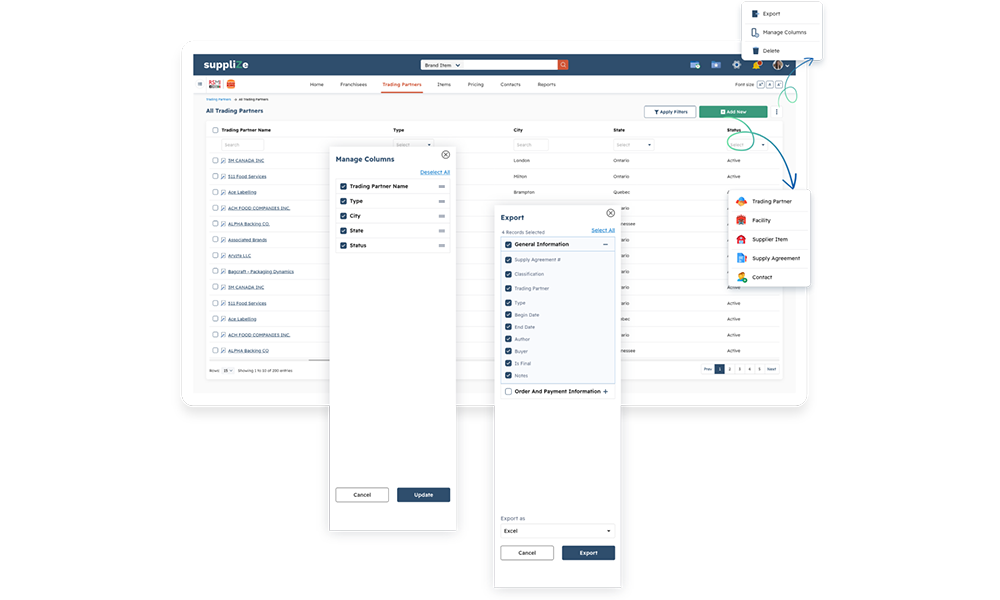
Problem Statement
- RBI engages with franchisees using inefficient manual workflows.
- Digital applications lack integration and extensibility, leading to franchisee dissatisfaction with RBI systems.
- Operational Areas for Improvement:
Website, financial portals, and intranet communications are in dire need of digital transformation to improve the franchisee experience. - Perform a UX audit to improve overall effectiveness of current applications used by franchisees.
- Assess the influence of point-solutions used by franchisees in context of challenges with RBI tool adoption and usage. Point-solutions are standalone solutions for a single use case, which is less efficient than an integrated operations platform.
- Need to map the desired capabilities of franchisees against available system applications and perform a feature gap analysis.
- Provide recommendations to improve negative experiences for both content authors and franchisees.
Project Solution
- Provide recommendations to improve content authoring and franchisee experiences in the system.
- Create concept designs for candidate applications, to clarify the future vision of the RBI system as a whole.
- Perform a UX Audit and concept design to help RBI identify inefficient processes, operations, and technologies.
- A strategy is needed to consolidate and reimagine IT application portfolio to improve franchisee experience and optimize operational costs.
- Provide self-service tools for franchisees to decrease franchisee support cycle time and get the most out of a franchisee ecosystem’s potential.
- By identifying pain points and redesigning digital touchpoints, the new launch will impact 30,000 Franchisees worldwide.
- Franchisees want to increase ease of doing business with RBI.
- RBI wants to help franchisees use tools more efficiently, to alleviate frustration.
- Franchisees want reliable and transparent processes updated regularly by RBI.
- Franchisees want a more comprehensive and faster onboarding experience.
- Achieve quicker support turnaround times to respond to customer needs at the restaurant locations faster.
- Create concept designs to explore what these RBI system apps could become in the future.
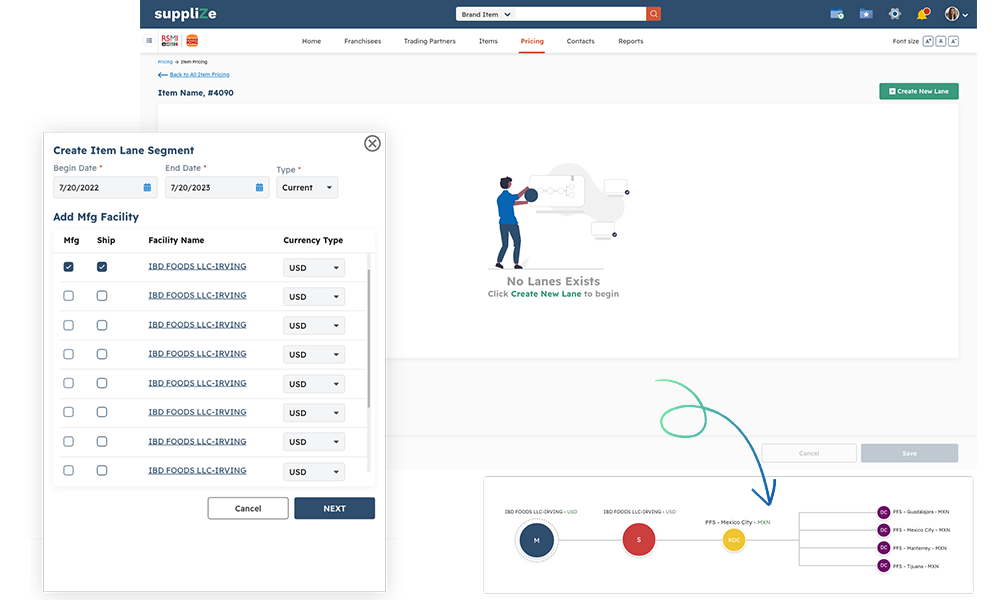
Our End-to-End Process
Trianz Digital Studio worked with the client across four phases. This phased approach ensures that our team has all the information it needs to provide targeted support to the client at each stage.
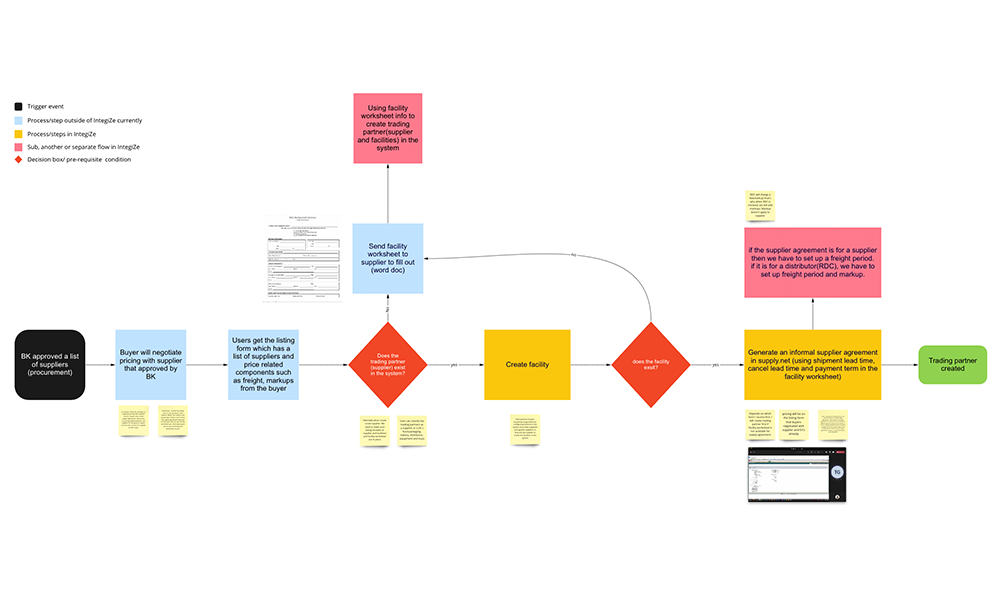
Learning
To begin, Digital Studio worked with RSI on the following:
-
Our team identified franchisee-facing applications and checked the app selection alignment.
-
The communication platforms capabilities were assessed via 20x stakeholder interviews, and 10x application demos—alongside a communications platform readout.
-
Further research identified high-level usability problems in the current system state.
-
Competitor exploration elucidated gaps in RSI’s own technical capabilities.
-
An in-depth audit of the user experience (UX) took place across TimZone (Tim Hortons), BK gateway (Burger King), and PLK Scoop (Popeyes) franchisee portals.
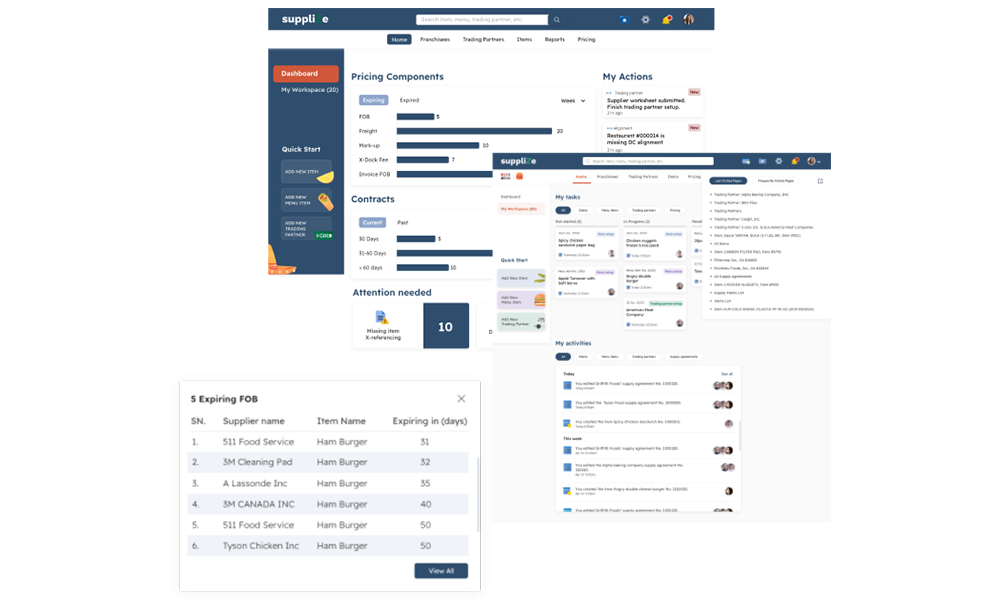
Analysis
-
High-level feature research took place relating to asset, project, and construction management tools used by restaurant owners.
-
A high-level UX audit took place across Lucernex and Smartsheet system apps.
-
Multiple concept design iterations were made and presented to stakeholders.
At the end of this stage, Digital Studio offered a final report alongside initial recommendations to RSI.
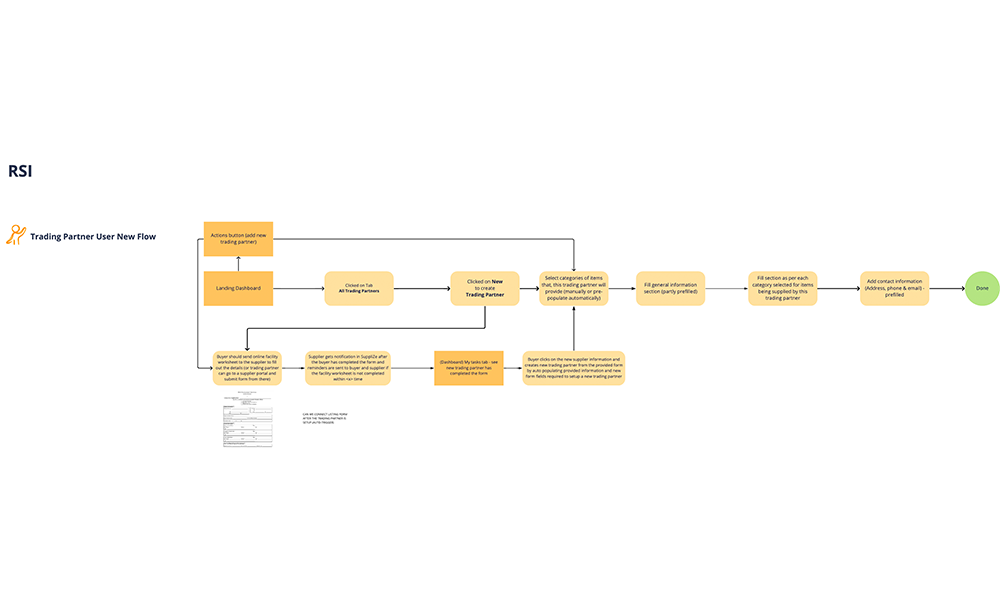
Inputs During the Audit Phase
For the 20x stakeholder interviews, Digital Studio focused on:
-
Capturing user pain points through interview research with internal and external stakeholders
-
Exploring critical usability issues on the communications platform, specific to each franchisee type
Our team conducted 10x application demos to:
-
Develop a holistic understanding of the high-level RBI application landscape
-
Perform deep-dive sessions relating to communication, site development, and financial applications used by restaurant owners
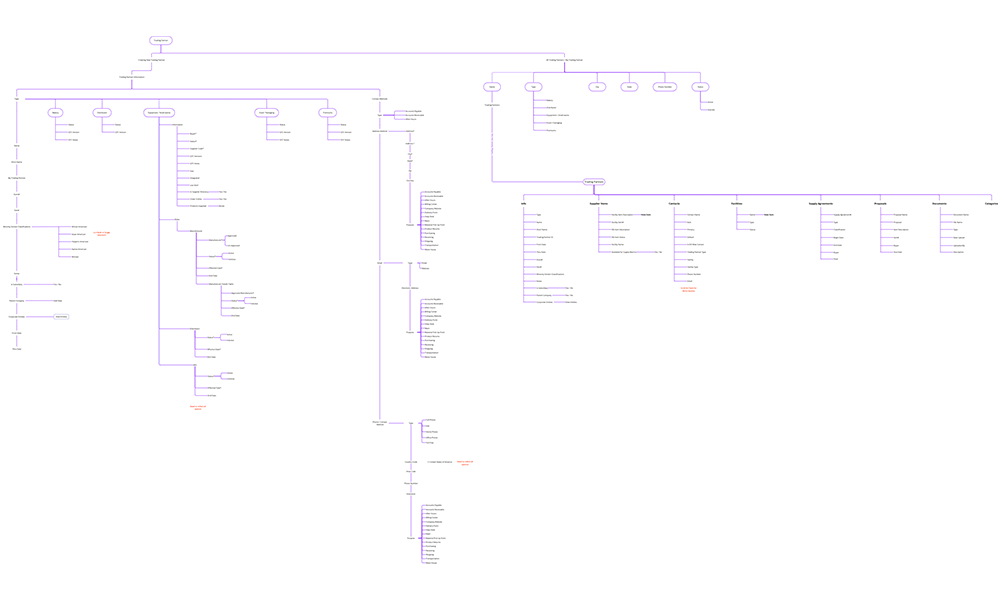
Further desk research took place to:
-
Explore and understand the intranet landscape
-
Understand which quick-service-restaurant (QSR) apps and technologies are used in the wider industry
-
Compare RSI technology capabilities versus competitors, and explore out-of-the-box solutions

Ideation
Franchisees Have Differing Needs
-
There is a lack of category-based structuring of information.
-
Franchisees cannot quickly find important or urgent information relating to their operations.

Analysis of IA
Franchisees are Lost in the Communications Portal
-
There is a lack of documentation content targeting and formatting.
-
Franchisees struggle to digest complex documentation.
-
Multiple content sources lead to confusion and misinformation.

Lack of Tool and Process Onboarding
-
Franchisees cannot access training or onboarding.
-
Restaurant staff lack the skills to use tools and perform processes.
-
Many franchisees opt for self-discovery, which takes significant time and effort.

Content Authoring for the Communications Team
-
The communications team struggles to control content and how its presented to users in the Jive platform.
-
A lack of site analytics means the communications team cannot gather feedback to continuously improve published content.
-
Read notifications and follow-up markers are not present.
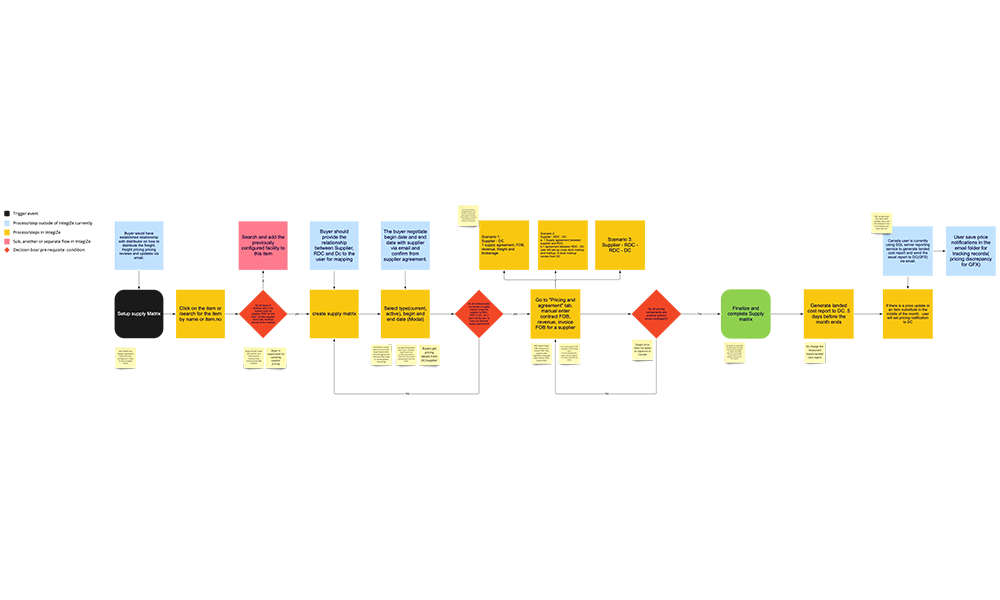
Design the System Based on Jobs-To-Be-Done
-
Workflows should be optimized based on the user end goal, while leveraging the latest engineering capabilities.
-
Core features and frequently used jobs-to-be-done should be more prominent in the UI design, with the addition of user personalization.
-
Transitioning to plain language and a content strategy will remove guess work and improve application usability.

Understanding User Mental Models to Make the Product User Friendly
-
The user should be able to intuitively follow steps in a process.
-
The product should follow modern design patterns and UX design principles.
-
The UX should be scalable to external users outside of the initial user base.
-
Create and deploy multi-generational experiences, suitable for Gen Z and Baby Boomers.
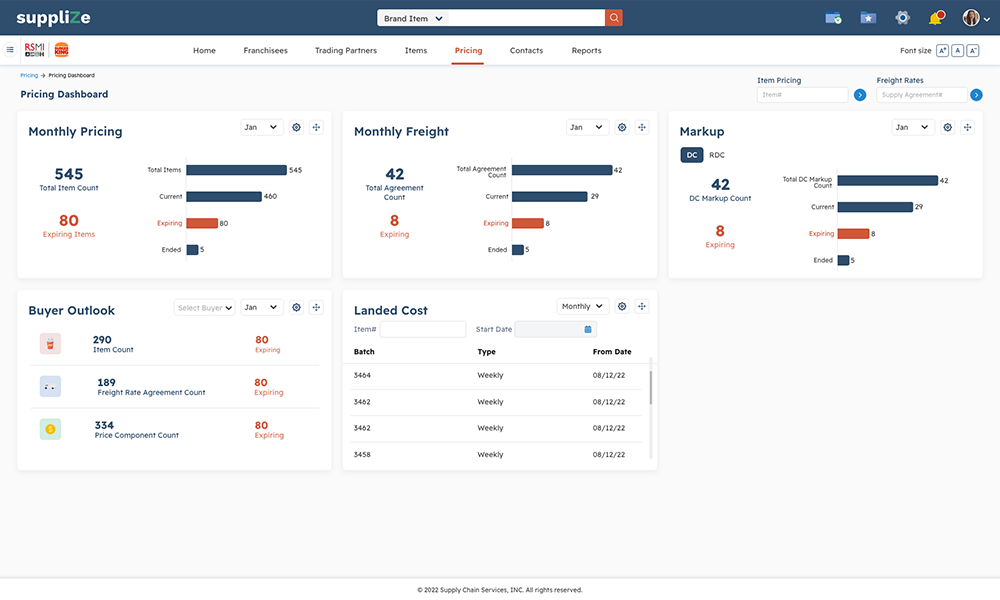
Invest in Creating a Beautiful and Delightful Portal UI
-
Design a clean layout with an optimal information density on-page.
-
Use modern colors, typography, and UI elements to enhance the experience.
-
Create contextual, dynamic UI components that improve user engagement and system interactivity.
-
Utilize motion and storytelling to cultivate a product with personality, to the benefit of the franchisee and its employees.

Creating a Mobile-Friendly, Scalable Portal Across All Franchise Brands
-
Consolidate individual billing, invoicing, payment, disputes, and receipts portals into an all-in-one portal.
-
Centralized access to all of the above features will give a holistic, 360-degree operational view to franchisees.
-
Unify the user experience (UX) to drastically reduce the learning curve, by reducing five standalone apps into one integrated solution.

Site Development Concept
-
It takes 8 to 18 months to perform site development.
-
Some franchisees have multiple simultaneous site developments in progress, depending on expansion agreements with RSI.
-
Documents, drawings, paperwork, and contracts are hard to track.
-
Version control is missing, meaning outdated documentation often appears to franchisees in the portal.
-
These problems would be overcome with an upgraded documentation management system (DMS), alongside the addition of site development tracker functions.
The Business Impact
Digital Studio implemented the following technology solutions to help the German client reach its goals:
Experience Design Case Studies
The case studies below are a window into a typical Enterprise Level project experience at Digital Studio. Take a look behind the scenes at how our team delivers meaningful digital experience transformations for top brands worldwide.
View Our WorkTogether, we can do great things.
Our team is ready and waiting to hear how we can help you transform your digital experience and create a uniquely “You” solution that modernizes your digital brand.


